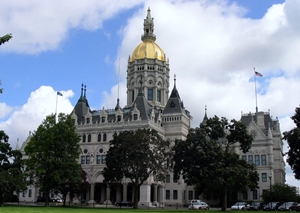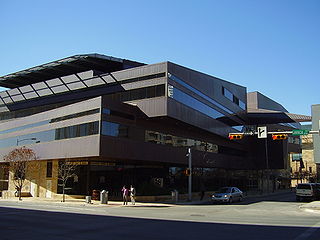June 13, 2022 •
Ask the Experts – Keeping Compliant while Lobbying in the States

Lady Justice - by Edward Lich from Pixabay
Question: I am planning to give a state legislator a permissible gift. I know I need to include it on my next lobbying disclosure report. Do I need to worry about anything else to make sure I am compliant with […]
Question: I am planning to give a state legislator a permissible gift. I know I need to include it on my next lobbying disclosure report. Do I need to worry about anything else to make sure I am compliant with state laws?
Answer: Yes, some states have additional requirements when an expenditure is made on a covered state official or employee. You may be required to provide the official with a notification or file additional reports.
California requires filers reporting gifts aggregating $50 or more in a calendar year to an official to provide the beneficiary with the date and amount of each gift reportable and a description of the goods or services. This information must be provided to the beneficiary within 30 days following the end of each calendar quarter in which the gift was provided.
In Virginia, lobbyists must send each legislative and executive official who is required to be identified by name on schedule A or B of the Lobbyist’s Disclosure Form a copy of schedule A or B or a summary of the information pertaining to that official. Notifications are due to the official by January 10 for the preceding 12 months. Additionally, lobbyists must send post-session notifications to covered officials summarizing all gifts made by the lobbyist during the period beginning on January 1 complete through adjournment sine die of the regular session.
Maryland requires additional reporting for certain permissible expenditures. A lobbyist who invites all members of a legislative unit to a meal or reception must, at least five days before the date of the meal or reception, extend a written invitation to all members of the legislative unit and register the meal or reception with the Department of Legislative Services on Form 13E by filing the report electronically. A post-event filing is then required within 14 days after the date of the meal or reception meal or reception.
Proper gift disclosure can involve more than simply including the gift on your normal lobbying disclosure reports. It is always a good idea to check the jurisdiction’s specific disclosure requirements on our website prior to giving a gift.
You can find this information under the “Reports Required” section of the U.S. Lobbying Compliance Laws online publication.
Michigan lawmakers introduced several new bills proposing fundamental changes for lobbying disclosure and gift laws. Senate Bill 963 requires lobbyists to file monthly reports instead of the current schedule of twice a year. The bill also includes a two-year revolving door […]
Michigan lawmakers introduced several new bills proposing fundamental changes for lobbying disclosure and gift laws.
Senate Bill 963 requires lobbyists to file monthly reports instead of the current schedule of twice a year. The bill also includes a two-year revolving door ban for members of the Legislature.
House Bill 5926 amends the definition of lobbying to include partisan legislative employees in the list of covered officials.
House Bill 5927 implements a gift ban, prohibiting a public official or his or her immediate family member from directly or indirectly soliciting, agreeing to accept, or accepting anything of value from a lobbyist or lobbyist agent.
December 9, 2019 •
New Portland, Oregon Lobbying Administrative Rules in Place
The Portland Auditor has announced administrative rule changes to the city’s lobbying regulations. The revised rules clarify the definition of lobbying to include grassroots lobbying and attempts to gain goodwill. Fiscal disclosures are required to include expenses related to grassroots […]
The Portland Auditor has announced administrative rule changes to the city’s lobbying regulations.
The revised rules clarify the definition of lobbying to include grassroots lobbying and attempts to gain goodwill.
Fiscal disclosures are required to include expenses related to grassroots lobbying.
The rule changes also provide guidance on governments registering as lobbying entities if certain types of lobbying occur.
Governments will be considered lobbying entities when certain outside individuals lobby on their behalf.
The regulation changes also exclude certain cultural gifts from the city’s lobbying registration and reporting requirements if the market value of the gift cannot be easily determined and declining the gift is likely to cause offense.
Additionally, the revised rules provide guidance on when lobbying groups and city officials may be fined for late filings.
The auditor’s office will issue a warning notice for late filings.
Reports must be filed within 24 hours after the deadline or a late fee will be assessed up to $500 per report.
June 17, 2019 •
NYCU Video Digest – June 17, 2019
New FARA Regulations, and changes being made to lobbying disclosures in various states. Catch up with all of it in this edition of News You Can Use Video Digest!
New FARA Regulations, and changes being made to lobbying disclosures in various states. Catch up with all of it in this edition of News You Can Use Video Digest!
March 21, 2019 •
Minnesota Legislators Introduce Several Ethics Bills
The Minnesota Legislature recently introduced several ethics-related bills during the 91st legislative session. Senate File 2041 requires public officials to disclose a lobbyist, principal, or other interested person by whom the individual is compensated in excess of $50 in any […]
 The Minnesota Legislature recently introduced several ethics-related bills during the 91st legislative session.
The Minnesota Legislature recently introduced several ethics-related bills during the 91st legislative session.
Senate File 2041 requires public officials to disclose a lobbyist, principal, or other interested person by whom the individual is compensated in excess of $50 in any month for providing services as an independent contractor or consultant.
Additionally, the bill requires both lobbyists and principals to disclose political contributions. If passed, Senate File 2041 will become effective the day following enactment.
Senate File 2039 seeks to prohibit legislators, constitutional officers, commissioners, deputy commissions, assistant commissioners, or heads of any state department or agency from lobbying for seven years after leaving the aforementioned offices or positions.
House File 2391 seeks to prohibit former legislators and certain legislative employees from lobbying the legislature for two years after leaving legislative office or separation from employment.
Senate File 2035 creates a conflict of interest when a legislator or constitutional officer accepts a contribution of more than $500 from a lobbyist, principal, political committee, or political fund with regard to an action coming before the officer when the contributing individual or association has a greater financial interest of greater consequence to the contributor than the general interest of other residents or taxpayers of the state.
If a conflict arises, the covered official must disclose the conflict.
May 10, 2018 •
Connecticut General Assembly Adjourns Sine Die
The Connecticut General Assembly adjourned sine die on May 9, 2018. Lawmakers took no action on a bill affecting campaign finance and elections. House Bill 5526 would have modified registration requirements for political committees, expanded independent expenditure disclosure requirements, prohibited […]
 The Connecticut General Assembly adjourned sine die on May 9, 2018. Lawmakers took no action on a bill affecting campaign finance and elections.
The Connecticut General Assembly adjourned sine die on May 9, 2018. Lawmakers took no action on a bill affecting campaign finance and elections.
House Bill 5526 would have modified registration requirements for political committees, expanded independent expenditure disclosure requirements, prohibited independent expenditures by foreign-influenced entities, and required online platforms to disclose purchasers of political advertisements.
Employer and lobbyist reports are due on the 10th day of the following month when the General Assembly is in regular session.
January 26, 2018 •
Austin Lobbyists Agree to Disclose Compensation
Lobbyists in Austin have agreed to cooperate with the city and disclose how much clients pay them. Taking a lead from state and federal filing requirements, Austin began requiring lobbyists to report what they are paid last year. Seventeen lobbyists […]
 Lobbyists in Austin have agreed to cooperate with the city and disclose how much clients pay them. Taking a lead from state and federal filing requirements, Austin began requiring lobbyists to report what they are paid last year.
Lobbyists in Austin have agreed to cooperate with the city and disclose how much clients pay them. Taking a lead from state and federal filing requirements, Austin began requiring lobbyists to report what they are paid last year.
Seventeen lobbyists registered with the city, all lawyers, asserted attorney-client privilege prohibited them from the disclosure. The city’s Ethics Review Commission was scheduled to hear ethics complaints filed against the group, but all 17 amended their reports to add the missing information.
A lobbyist who originally refused to disclose his compensation said the City Clerk accepted the form without the information and there is even space provided for an explanation as to why the compensation information was not disclosed.
Austin’s actions this week have set an example for enforcing the reporting requirements moving forward.
February 1, 2013 •
California FPPC Chair Announces Review of Lobbying Disclosure
Workgroup to examine “other” reporting category
 Ann Ravel, Chair of the Fair Political Practices Commission, has assigned a working group to take on issues relating to lobbying disclosure practices. Currently, lobbying disclosure forms allow reporting of huge sums in a catch-all category requiring no detailed reporting to authorities.
Ann Ravel, Chair of the Fair Political Practices Commission, has assigned a working group to take on issues relating to lobbying disclosure practices. Currently, lobbying disclosure forms allow reporting of huge sums in a catch-all category requiring no detailed reporting to authorities.
State law allows groups hiring lobbyists to report spending related to lobbying, but not meeting the legal definition of lobbying, as a single lump sum in a category listed as “other payments to influence.” Over the past 12 years, lobbying groups have listed in this category over one-quarter of the $2.9 billion spent on lobbying efforts.
The working group is set to include lobbyists, watchdog representatives, and political lawyers.
January 3, 2011 •
Proposed Bill for Disclosure of Lobbying of Local Indiana Governments
State Senator Wants Transparency
 State senator Jim Arnold announced he will introduce legislation to regulate lobbying disclosure rules for all levels of local government in Indiana. In his proposed bill, spending by vendors bidding for contracts of $100,000 or more with a governmental body would trigger mandatory disclosure.
State senator Jim Arnold announced he will introduce legislation to regulate lobbying disclosure rules for all levels of local government in Indiana. In his proposed bill, spending by vendors bidding for contracts of $100,000 or more with a governmental body would trigger mandatory disclosure.
Local governmental officials, including county commissioners and city council members, would be required to report whenever a lobbyist spent money on them over a threshold limit.
The law is not intended to supersede local ordinances but would still establish and necessitate minimum requirements of disclosure.
Photo of State senator Jim Arnold courtesy of the Indiana Senate Web site.
State and Federal Communications, Inc. provides research and consulting services for government relations professionals on lobbying laws, procurement lobbying laws, political contribution laws in the United States and Canada. Learn more by visiting stateandfed.com.

